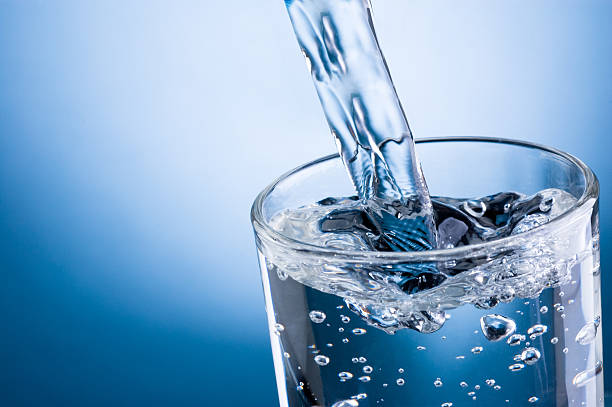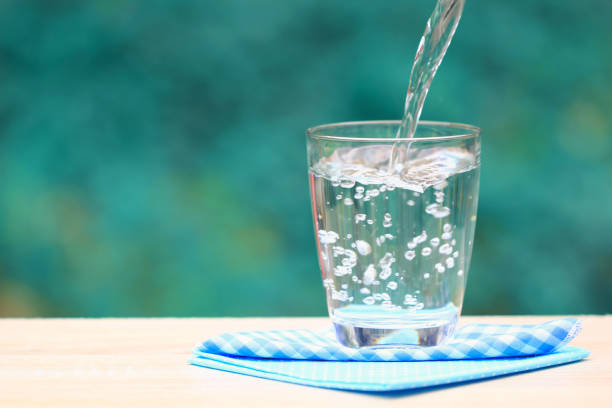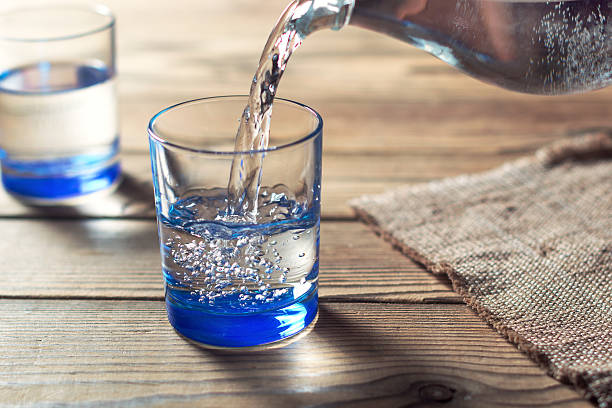When we think of staying healthy, drinking plenty of water is often one of the first things that come to mind. It is essential for many bodily functions, from maintaining healthy skin to supporting digestion. But have you ever wondered about its effects on your eye health? Can drinking more water improve the way your eyes feel and function? Let’s explore the connection between hydration and eye health, and how drinking enough water may help keep your eyes in tip-top shape.
The Importance of Hydration for Overall Health
Water makes up about 60% of our body weight, and staying hydrated is crucial for many vital processes. When it comes to eye health, it helps in several important ways. Proper hydration ensures that the body can produce tears, which are essential for lubricating the eyes. It also helps the body maintain a healthy balance of nutrients, which can prevent dry eyes and promote good vision.
How Water Affects the Eyes

Eyes are made up of delicate tissues, and these tissues depend on hydration to stay healthy. Here’s how water benefits your eyes:
1. Preventing Dry Eyes
Dry eye syndrome is a common issue that many people face, especially in environments with low humidity or during long hours spent staring at a computer screen. When you don’t drink enough water, your body may not produce enough tears, which are necessary to keep the eyes moist. This can lead to a feeling of dryness, irritation, and even blurred vision. By staying hydrated, you help your eyes produce enough tears, preventing dry eye symptoms.
2. Supporting Tear Production
Tears are made up of water, proteins, and other substances that protect the eyes from infections and irritants. When you are properly hydrated, your body is more likely to produce a healthy amount of tears. This can help your eyes stay comfortable and clear, especially in dry or windy conditions. Tear production is also important for maintaining the overall health of the cornea, which is essential for clear vision.
3. Reducing the Risk of Eye Infections
Your tears do more than just keep your eyes moist. They also help fight off bacteria and foreign particles that can lead to infections. When your body is well-hydrated, your tear production is at its peak, which helps your eyes stay protected from potential infections. It aids in the production of these protective fluids, ensuring that your eyes have the support they need to stay healthy.
4. Maintaining Eye Pressure
Hydration also plays a role in maintaining healthy intraocular pressure. The fluid in the eyes, known as aqueous humor, helps to maintain the shape of the eye and supports overall eye function. Adequate hydration ensures that the aqueous humor can flow properly, helping to regulate pressure in the eye. This can reduce the risk of conditions like glaucoma, a disease that can cause damage to the optic nerve due to high eye pressure.
Signs You May Not Be Drinking Enough Water

It’s easy to forget about hydration, especially when you’re busy. But there are some signs that may indicate you’re not drinking enough water, including:
- Dry, itchy, or red eyes
- Blurry vision
- Headaches
- Fatigue
- A feeling of heaviness in the eyes
- Sensitivity to light
If you notice these symptoms, it may be a good idea to increase your water intake and see if your eye health improves.
How Much Water Should You Drink for Optimal Eye Health?
The amount of water you need can vary based on factors like your age, activity level, and climate. A common recommendation is to drink at least eight 8-ounce glasses of water a day, also known as the “8×8 rule.” However, some people may require more or less depending on their individual needs.
If you’re physically active or live in a hot climate, you may need to drink more water to stay hydrated. On the other hand, if you’re consuming a lot of caffeinated beverages or alcohol, you may need to drink extra water to counteract the dehydrating effects of these drinks.
Water-Rich Foods for Eye Health
In addition, you can also support your hydration by eating foods that are high in water content. These foods not only keep you hydrated but also provide essential nutrients that benefit your eye health. Some examples include:
- Cucumbers: With a high water content, cucumbers help keep your body hydrated while also providing vitamin K, which is important for eye health.
- Watermelon: This fruit is packed with water and provides antioxidants like lycopene, which can protect the eyes from damage caused by free radicals.
- Strawberries: Rich in vitamin C, strawberries help promote healthy blood vessels in the eyes, supporting overall eye health.
- Oranges: The high vitamin C content in oranges is essential for maintaining the health of the eye’s blood vessels and supporting collagen production.
- Celery: Celery has a high water content and contains nutrients like vitamin A, which supports good vision.
By incorporating these foods into your diet, you can help ensure that your body stays hydrated and that your eyes receive the nutrients they need to stay healthy.
Tips for Staying Hydrated

Drinking enough water each day may seem simple, but it can be challenging for some people. Here are a few tips to help you stay hydrated throughout the day:
- Carry a water bottle: Keep a water bottle with you at all times to remind yourself to drink.
- Set reminders: If you often forget to drink water, set a timer or use a phone app to remind you to drink regularly.
- Drink before you feel thirsty: Thirst is a sign that your body is already dehydrated. Try to drink water consistently throughout the day.
- Drink herbal teas: If you find plain water boring, try drinking herbal teas like chamomile or peppermint. These can contribute to your hydration while providing extra health benefits.
When to See an Eye Doctor
While staying hydrated is essential for eye health, it’s not a cure-all for every eye condition. If you experience persistent eye discomfort, blurred vision, or other changes in your vision, it’s important to consult an eye doctor. They can help determine the cause of your symptoms and recommend appropriate treatment.
Conclusion
Drinking more water can certainly improve your eye health in many ways. From preventing dry eyes to supporting tear production and maintaining proper eye pressure, staying hydrated is an easy and effective way to keep your eyes functioning at their best. So next time you reach for a drink, remember that water isn’t just good for your overall health—it’s good for your eyes too!
By making hydration a priority, you’ll not only feel better but also help your eyes stay healthy and comfortable. Your vision matters, and taking care of it starts with something as simple as drinking more water.

